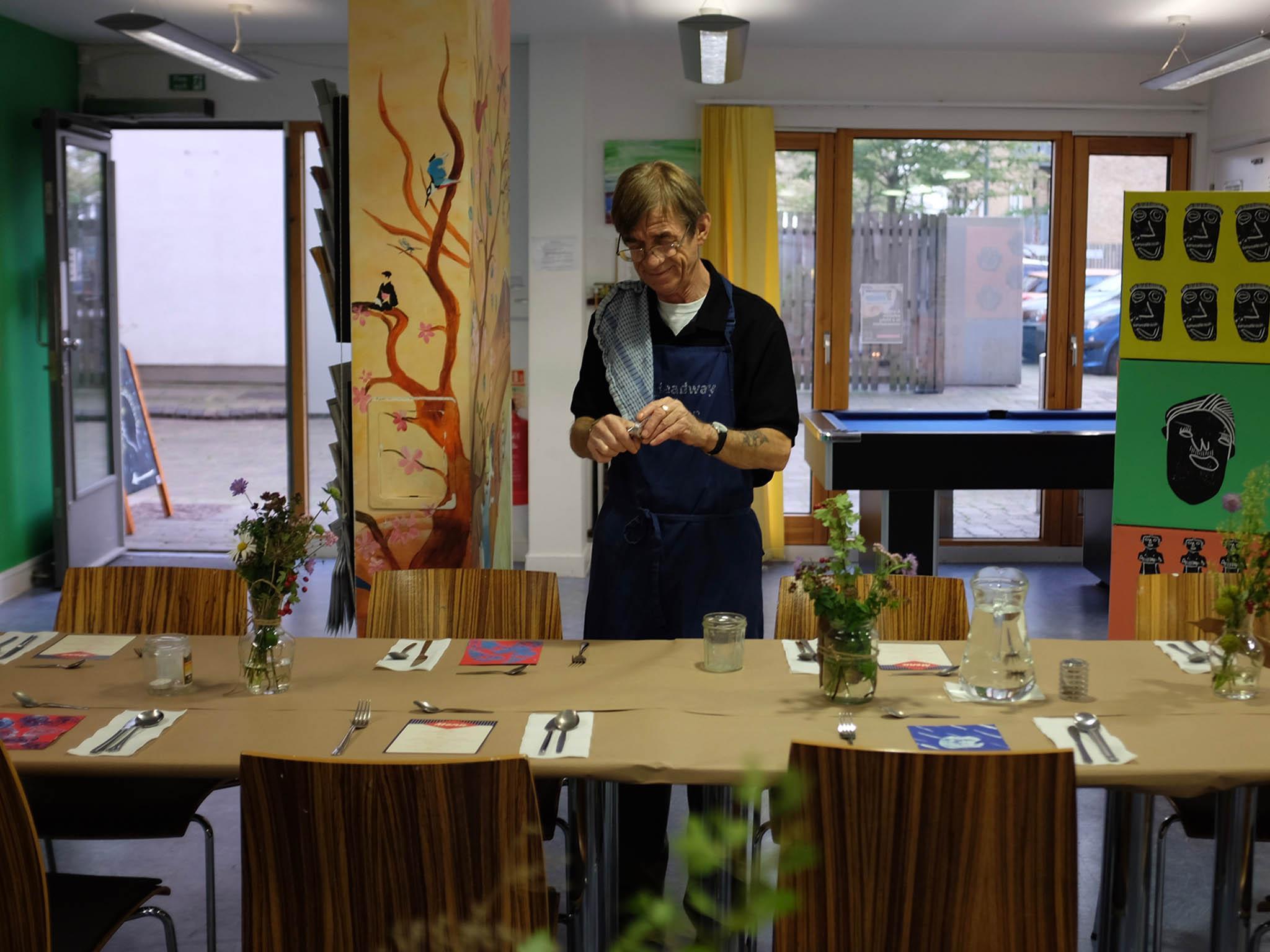Headway supper club: How cooking helps recovering head injury survivors
Julia Platt Leonard meets the people who use the memory of food and the act of cooking as a healer for people recovering from brain injuries

Dave is funny. He’s a great storyteller. He’s a husband and a father and an excellent cook. If you passed him on the street you never know that he has a brain injury. “I was a cab driver and then I had my brain injury and all the Knowledge of London just disappeared overnight,” he says.
Every year, close to 350,000 people in the UK are admitted to hospital for acquired brain injury – a term that includes everything from injuries caused by assaults, falls, road traffic accidents, strokes, tumours or – in Dave’s case – encephalitis, a virus that causes swelling in the brain. That translates to almost a thousand a day or more than one every 90 seconds. But while medical science has become better at saving the lives of people with brain injuries, the treatment of long term effects hasn’t kept pace.
Many like Dave, who is 51, face ongoing challenges and are never able to work again. “Your acute phase is finished in hospital and it’s like, ‘See you later’. And there’s no thought to how you’re going to survive,” he says. Resources are often slim on the ground and carers – in this case Dave’s wife – struggle to get help. For a fortunate few, some of the best, most transformative care comes from Headway, a charity set up in the ‘80s to help people with brain injuries and their families.
There are Headway chapters across the UK. Headway East London – where Dave goes once a week – is a seperate charity and has found a unique way to help, and it centres around something simple: food. “One of the biggest challenges that face our members after brain injury is memory,” says Laura Owens Communications and Development Manager. “That manifests itself in different ways in short term or long term memory. But actually one of the great ways that people still access memory is through food.”
Every weekday, Headway members, under the guidance of Thomas Alexander, kitchen projects lead, cook lunch which they serve to members, staff and volunteers who gather on sofas and around tables to eat together. Dishes might be favourites their mum cooked for them or that they prepared for their own children. “Food is a really good way for them to reach back into good times and actually look to create something good out of their situation,” Owens says.
Dave enjoyed cooking before his brain injury. “I managed to snag my wife cooking,” he laughs. “We did the courting thing for a few months and then I went around and cooked her dinner.” Now Dave’s wife is his primary caregiver. “It’s amazing that my wife stayed with me. I’m totally serious. The percentage of relationships that break down after a brain injury is massive. It’s like over 50 per cent. And that’s because you’ve changed. You’ve become a different person. Your personality has changed. You might have changed physically.”
Dave says he can get angry quickly, confused easily, and suffers from poor memory. He points to a scar on his forehead. “That was from head-butting the fridge,” he says. Today, the anger is less as he’s learned coping mechanisms. “If I go shopping and come back with all the shopping, all the change, not lost anything, not overstayed in the car park, it’s been great.”
Part of that is down to the time Dave spends cooking at Headway. His face lights up when he talks about the joy of working with others to make a meal and seeing people eat his food and enjoying it. “The kitchen here is such an amazing experience,” he says.
Spending a morning working in the kitchen I can see what he means. Thomas Alexander deftly guides us through our tasks, gently asking if someone needs a break or a cup of tea while making sure that each person can contribute to the meal. We all taste the mash and chime in if more salt is needed, two of us man frying pans to cook around forty eggs, and another keeps on top of the dirty pots and pans. As we plate up the food I look around the kitchen and realise I don’t know who is a member, who is staff and who is a volunteer.
It’s a feeling echoed by Owens. “I think one of the great things about Headway is that you can walk around and not really know who is who – who’s a member, who’s a volunteer, and who’s staff. And that culture is something we’ve worked really hard at,” she says. Food is familiar, food is comforting and a universal in everyone’s life. For someone with a head injury those simple facts can be a lifeline as they work to form a new sense of identity.
On the heels of their successful lunches, Headway East now runs bi-monthly supper clubs with the menu created and cooked by members. The evenings include spoken word and music performances by members as well as a carefully crafted meal. Each one requires a massive amount of planning, hard work and effort but it’s a challenge that Dave and other Headway members relish. “I’m always trying to look for the positive things around the things I do. If can lay some of that positivity at someone else’s feet than I feel great.”
The next Supper Club at Headway East is in January 2018. For more information visit here headwayeastlondon.org/events/headway-eats-jan-2018
Subscribe to Independent Premium to bookmark this article
Want to bookmark your favourite articles and stories to read or reference later? Start your Independent Premium subscription today.

Join our commenting forum
Join thought-provoking conversations, follow other Independent readers and see their replies